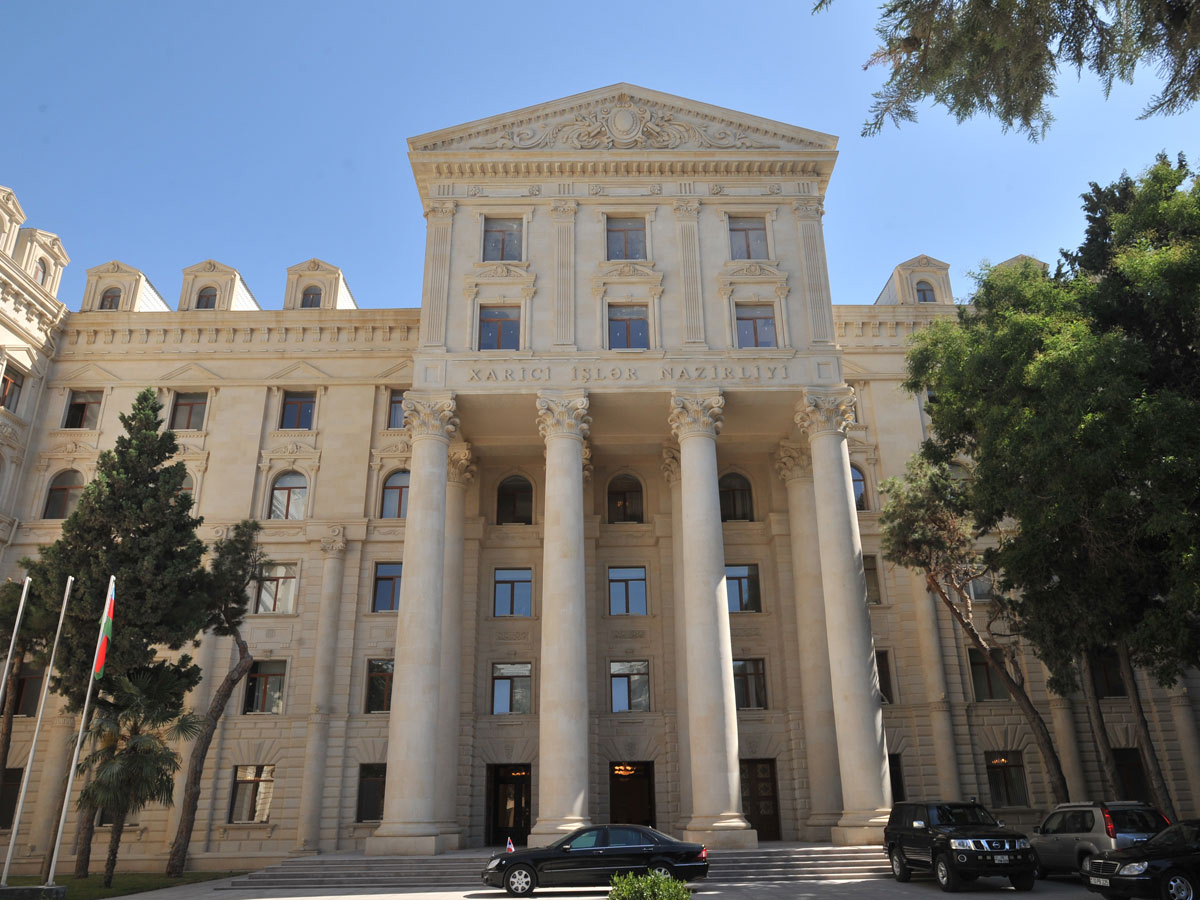Baku, Azerbaijan, June 7
Trend:
The meeting of the OSCE Minsk Group co-chairs with the Azerbaijani community of Nagorno-Karabakh is not the first meeting in this format, reads the statement by the Foreign Ministry of Azerbaijan.
The remarks came in response to recent comments of some media outlets about the meeting of the co-chairs of the OSCE Minsk Group with the Azerbaijani community of Nagorno-Karabakh during the recent visit to the region, Trend reports.
"This is not the first meeting in this format. Up to now, during the visits to the region, the co-chairs held meetings both with the Armenian community of Nagorno-Karabakh and with representatives of the Azerbaijani community. There is nothing surprising here. This is a part of the co-chairs’ mandate. The co-chairs’ mandate of 1995 states: “The co-chairs will be guided by the norms and principles of the OSCE, the UN Charter, CSCE decisions, including decisions of the Council of Ministers of March 24, 1992 and the Budapest Summit, as well as relevant resolutions of the UN Security Council." In the statement of the co-chairs, made on March 9 of this year, it was noted that along with the contacts with their mediation between Yerevan and Baku, discussions with the parties concerned continue. We would like to stress that the position of the Azerbaijani community of Nagorno-Karabakh and the issue of their return to their lands, along with other IDPs, have always been part of the negotiations. This issue is also reflected in the above statement of the co-chairs and the “return of all IDPs and refugees to their homes” is reflected as an important element of the negotiations. Definitely, it can be noted that the Azerbaijani community of the Nagorno-Karabakh region of our country is an important part of the negotiations.”
At the same time, it should be borne in mind that negotiations to resolve the conflict are held between Armenia and Azerbaijan in accordance with the relevant OSCE resolutions, and this approach is also supported by the co-chairs of the Minsk Group,
reads the statement.
“In conclusion, we urge those who are interested in the issues discussed at the negotiating table to familiarize themselves with the statement of the Minsk Group Co-Chairs dated March 9, 2010. Then all the speculations will end," said the ministry.
The conflict between the two South Caucasus countries began in 1988 when Armenia made territorial claims against Azerbaijan. As a result of the ensuing war, in 1992 Armenian armed forces occupied 20 percent of Azerbaijan, including the Nagorno-Karabakh region and seven surrounding districts.
The 1994 ceasefire agreement was followed by peace negotiations. Armenia has not yet implemented four UN Security Council resolutions on withdrawal of its armed forces from Nagorno Karabakh and the surrounding districts.






